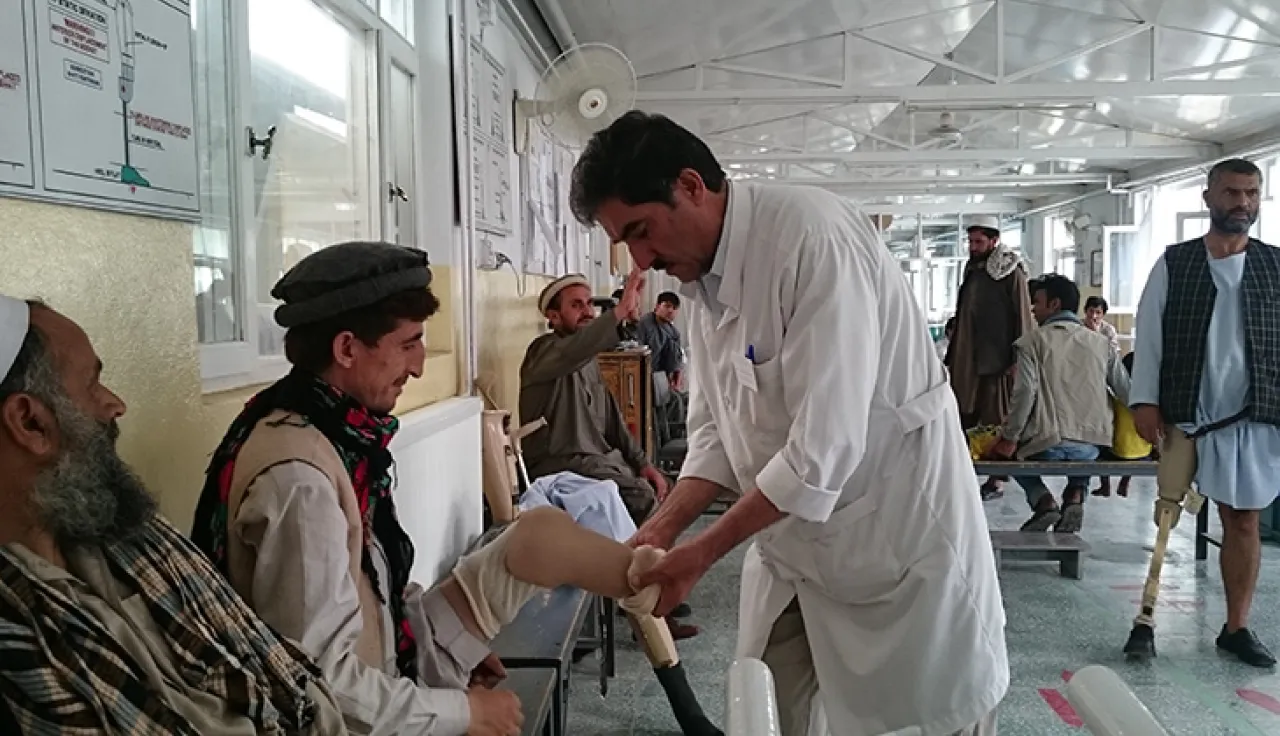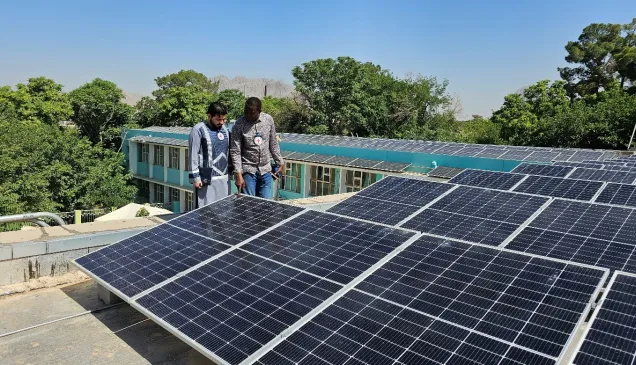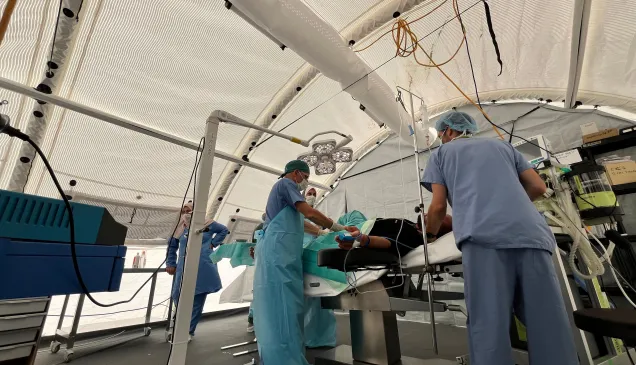Afghanistan: A lifetime journey assisting people in need

Najmuddin Hilal was only 18 when he lost his leg to a landmine.
He spent the next year in a hospital, slowly recuperating. Then five more years at home, unable to work or lead a normal life.
"During that time, my dream was to engage in humanitarian aid work. Being marginalized for five years burnt me inside," recalls Najmuddin.
And then one day, his dream came true.
Joining the ICRC team in Kabul
In September 1988, Najmuddin started work as an assistant physiotherapist at the ICRC's orthopaedic centre in Kabul.
"I was providing physiotherapy services for disabled people; preparing artificial legs, arms and doing other orthopaedic work. Helping people in need, every day, constantly inspires me to continue in humanitarian work."
"There are many reasons for continuing this work after all these years. The most important one to me is that I see people with disabilities coming to our orthopaedic centre, completely dependent on the help of others. After about a week, they return to their families, completely self-reliant. This gives me strength, happiness and encouragement to continue my work," muses Najmuddin.
"Because of my own experiences, I understand the stigmatization a disabled person faces in Afghan society. I see my work as a means to help people with disability fight that stigmatization and fully reintegrate into the society. Everybody can be active participants in the lives around them, regardless of disability. A person with disabilities is just as capable. Being disabled doesn't mean being powerless."
Najmuddin adds, "Over the past 27 years, I have assisted thousands of people in need. But my journey in the humanitarian field is far from over. In fact, it's only just begun."
Limb-fitting and physical rehabilitation
The ICRC runs seven prosthetic / orthotic centres in Afghanistan, providing rehabilitation services for amputees and other people with disabilities.
Between January and June in 2015, dedicated staff like Najmuddin helped nearly 65,000 people.
Learn more about the ICRC's work in Afghanistan.



